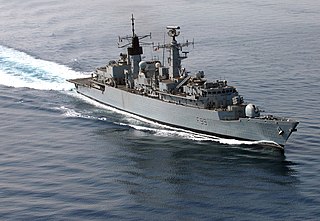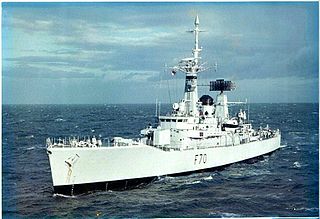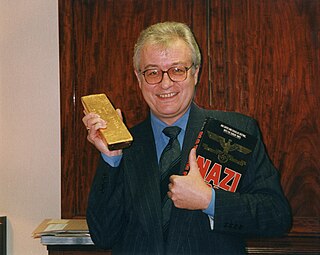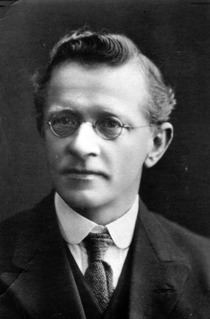
Dartmoor Preservation Association (DPA) is one of the oldest environmental or amenity bodies in the UK. It was founded in 1883. It concerns itself with Dartmoor, a National Park in Devon, south-west England. It began with two main areas of concern. Firstly, commoners' rights were being eroded through army use, including the firing of live artillery shells, and piecemeal enclosure of land around the margins. Secondly, there was increasing public interest in Dartmoor's scenery, archaeology, history and wildlife

The Jewels Belonging to the Most Illustrious Order of Saint Patrick, commonly called the Irish Crown Jewels or State Jewels of Ireland, were the heavily jewelled star and badge regalia created in 1831 for the Sovereign and Grand Master of the Order of St. Patrick, an order of knighthood established in 1783 by George III as King of Ireland to be an Irish equivalent of the English Order of the Garter and the Scottish Order of the Thistle. The British monarch was the Sovereign of the order, as monarch of Ireland until 1801 and of the United Kingdom of Great Britain and Ireland thereafter. The Lord Lieutenant of Ireland was the Grand Master in the absence of the Sovereign. The insignia were worn by the Sovereign at the investiture of new Knights as members of the order, and by the Grand Master on other formal ceremonial occasions. They were stolen from Dublin Castle in 1907 along with the collars of five knights of the order. The theft has never been solved and the jewels have never been recovered.

The Type 42 or Sheffield class, was a class of fourteen guided missile destroyers that served in the Royal Navy. A further two ships of this class were built for and served with the Argentine Navy.

The Type 22 frigate also known as the Broadsword class was a class of frigates built for the British Royal Navy. Fourteen were built in total, with production divided into three batches.

The Leander-class, or Type 12I (Improved) frigates, comprising twenty-six vessels, was among the most numerous and long-lived classes of frigate in the Royal Navy's modern history. The class was built in three batches between 1959 and 1973. It had an unusually high public profile, due to the popular BBC television drama series Warship. The Leander silhouette became synonymous with the Royal Navy through the 1960s until the 1980s.

The Churchill War Rooms is a museum in London and one of the five branches of the Imperial War Museum. The museum comprises the Cabinet War Rooms, a historic underground complex that housed a British government command centre throughout the Second World War, and the Churchill Museum, a biographical museum exploring the life of British statesman Winston Churchill.

The A4174 is a major ring road in England which runs around the northern and eastern edge of Bristol, mainly in South Gloucestershire, and through the southern suburbs of the city. When it was first conceived it was planned to circle the whole of Bristol, and is commonly referred to as the "Avon Ring Road", or less accurately the "Bristol Ring Road", on road signs. The road does not circle the whole city, instead covering roughly half of the route. It is broken in part where it is concurrent with the A4. Part of the dual carriageway north of Mangotsfield occupies the alignment of the former Midland railway line which closed in 1966.

Daniel Granville West, Baron Granville-West was a British Labour politician. After establishing a successful solicitors practice, guided by Welsh baptist principles, he became a leading socialist in the post-war era. Baptised at the Tabernacle English Baptist Church, Monmouthshire, he remained a dedicated member all his life. Prominent in the opposition party during the Gaitskell period in 1950s and early 1960s, he remained committed to law and order in Wales, and nationalisation of the rail industry. He was horrified by the legacy of Imperial decline which he blamed for growing unemployment in the valleys.

Bernard “Nursey” Donoughue, Baron Donoughue is a British Labour Party politician, academic, businessman and author.
The Press Council was a British voluntary press organisation founded under threat of statutory regulation as the General Council in 1953, with a non-binding regulatory framework. Through most of its history the Council was funded by newspaper proprietors, with the stated aim of maintaining high standards of ethics in journalism. The General Council was reformed as the Press Council in 1962, with 20 per cent lay members. In 1980 the National Union of Journalists withdrew from membership. In 1991, the Press Council was replaced by the Press Complaints Commission.
The National Health Service Lottery was a failed lottery scheme designed to provide funding for the National Health Service in the United Kingdom. The scheme progressed as far as a trial in May 1988, but the draw was cancelled at the last minute on legal grounds, and the 43,000 people who took part had their money refunded.
Electoral reform is change in electoral systems to improve how public desires are expressed in election results. That can include reforms of:

Richborough power station was a 336 MW power station close to the mouth of the River Stour near Sandwich, on the east coast of Kent. It was built on land within the Port of Richborough but being on the northern edge its site lies mostly within the neighbouring parish of Minster, Kent. It operated from 1962 to 1996; the towers were demolished on 11 March 2012. BFL Management Ltd, the current owners of the site plan to bring it back into use as the £750 million Richborough Energy Park.
Sir Harry Alexander Fanshawe Lindsay KCIE, CBE was a civil servant and administrator.

Ian K. T. Sayer is a British entrepreneur, World War II historian, author and investigative journalist. His Sayer Transport Group became part of the British and European overnight door to door express parcels delivery industry.
Plant A Tree In '73 was a Government-sponsored national campaign in the United Kingdom, aimed at encouraging the population to participate by planting trees during the 1973 'National Tree Planting Year'. At the time a new, virulent strain of Dutch Elm Disease was sweeping the country, killing millions of trees.
The Industrial Organisation and Development Act 1947 enabled the creation of industrial development Boards with powers to raise levies from specific industrial sectors in the United Kingdom for co-ordinated action, particularly in research, marketing and industrial re-organisation. These Boards were to report to the Board of Trade and have equal representation from trades unions and employers alongside independent experts.

Francis Alfred Broad JP, usually known as Frank Broad, was a Labour politician in the United Kingdom who served as Member of Parliament (MP) for the Municipal Borough of Edmonton during the years 1922–1931 and 1935–1945.

The Anniversary Days Observance Act was an Act of the Parliament of the United Kingdom which repealed several laws mandating "political services" or "state services": observance by the Church of England and Church of Ireland of certain anniversaries from 17th-century political history.

The Trade Facilities Acts were a series of Acts of the Parliament of the United Kingdom that were designed to alleviate the problem of large scale unemployment in the aftermath of the First World War. Acts were passed in 1921, 1922, 1924, 1925 and 1926 by four successive governments. The acts enabled companies to borrow money, with the capital and interest guaranteed by the government, for projects which would create employment. By the end of the scheme in March 1927, almost £75 million had been guaranteed to a range of industries. Whether the acts had a significant effect on unemployment has been debated, but one lasting legacy was the funding of the extension and refurbishment of what became the London Underground Northern line.













